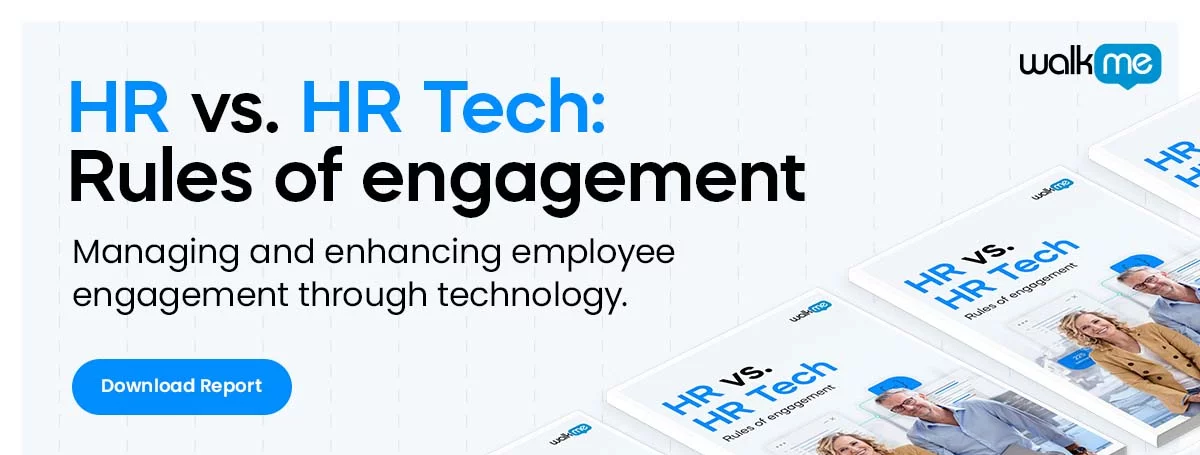
In this post, we’ll cover some of the most important offboarding interview questions to ask when employees depart the organization.
Asking the right questions, after all, is necessary if you want to obtain useful information from employees.
7 Offboarding Interview Questions to Ask Departing Employees
Before coming up with a list of questions to ask when employees leave the company, it is important to understand the purpose of exit interviews – only then can you ask questions that can add real value to the business.
Conducting an exit interview will offer insights into:
- The employee experience
- The workplace
- Organizational culture
- Management
- Business processes
- The employer brand
All of those insights, in turn, can be fed back into the company to improve business processes, organizational performance, management training, employee productivity, and much more.
To glean such insights, however, it is important to ask the right questions.
Here are a few to consider:
Why are you leaving?
The answer to this question can tell an employer many things about the employee’s experience, including:
- How the employee felt about the company
- The employee’s perception of the workplace
- Job-person fit
- Culture fit
Knowing the answer to this question can help HR managers drill down to the core problem that drove the employee to leave their position. Naturally, that reason is not always within the organization’s control – but in many cases it is, and this question can help pinpoint that issue.
What is your opinion of management?
The answer received to this question can help HR managers and business leaders identify whether or not management quality contributed to the employee’s choice to leave. While not all employees leave due to the quality of management, it is common.
For example, poor management, according to Gallup, causes significant harm to an organization’s performance, decreasing engagement, increasing turnover, and more. For reasons such as this, Gallup also predicts that in the future, successful workplaces will rely on manager development.
This question, therefore, aims to uncover the effectiveness of management in general and, more specifically, the employee’s supervisors.
Do you have any suggestions for improving the workplace?
This question aims at grasping the employee’s perception of the work environment itself.
Answers can vary greatly and cover topics including:
- The digital workplace experience
- Workflows
- The physical workspace
- The organizational culture
- Tools and equipment
Like many of the other questions here, this question is designed to help the business improve its processes and its environment.
How well did you fit in with your team?
Team dynamics play an important part of an employee’s experience with their company.
While not all aspects of that dynamic can be controlled, many can.
During the hiring process, for instance, managers often select candidates based not only on their skills, but on their personalities and their temperaments.
This question can help HR managers understand the effectiveness of their hiring strategy, as well as other aspects of the workplace, such as the company culture.
Was the training you received adequate and effective?
Employee training plays an important role in employee metrics such as engagement, performance, productivity, and even job satisfaction.
When that training is adequate, employees will feel confident and properly prepared to do their jobs.
When it is not, they will make more mistakes, become more frustrated, and be less engaged.
Also, it is worth noting that many employees prefer employers who provide adequate training and career development options – and if your company doesn’t provide sufficient training, many will move on to one that does.
What is your next career move?
Asking employees about their next career choice is yet another technique for understanding what employees want and why the organization isn’t the right fit.
As with the other questions listed here, the answer to this question may not be relevant.
Employees, for example, may be leaving for reasons that have little do do with the organization, or they may be leaving for reasons completely outside the organization’s control.
Yet in some cases, their career move may be fueled by factors that can be controlled – such as inadequate compensation, poor management, or ineffective training.
Would you recommend working here to others?
This question is much like the Net Promoter Score (NPS), which most of us have seen.
It asks:
On a scale of 0 to 10, how likely are you to recommend this company to a friend or colleague?
The NPS can help business leaders gauge the company’s potential growth by categorizing responses into three categories – those who would promote the brand, those who hold a passive attitude towards the brand, and those who would detract from the brand.In the same way, this question can be used in the exit interview to gauge employer branding: the more likely employees are to promote the employer and the workplace, the easier it will be to find a talented workforce.a
WalkMe Team
WalkMe spearheaded the Digital Adoption Platform (DAP) for associations to use the maximum capacity of their advanced resources. Utilizing man-made consciousness, AI, and context-oriented direction, WalkMe adds a powerful UI layer to raise the computerized proficiency, everything being equal.



